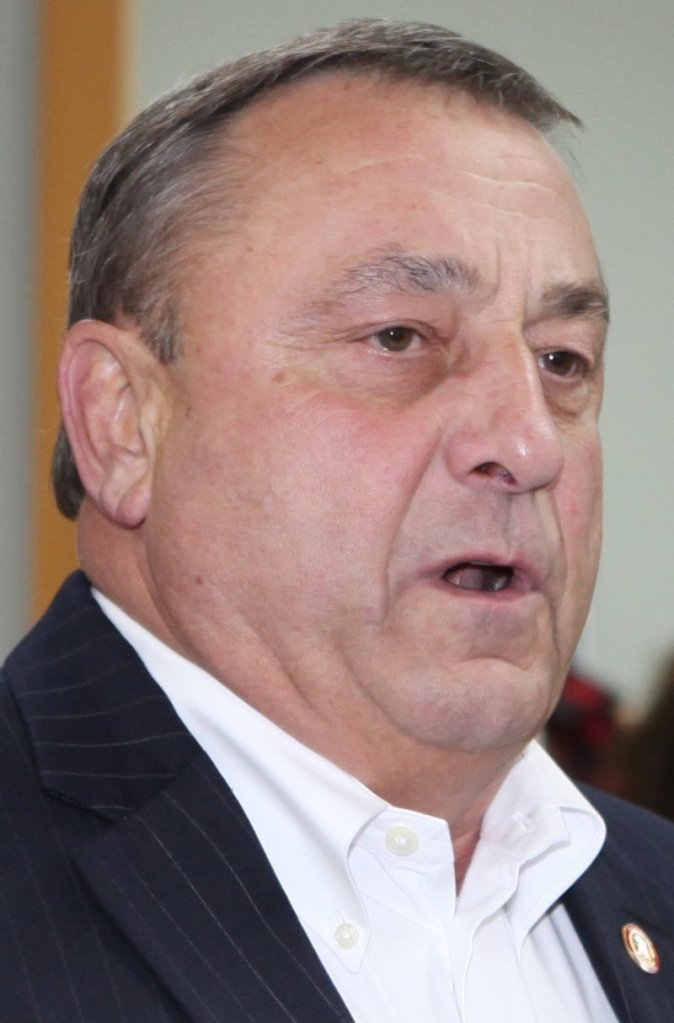AUGUSTA — Gov. Paul LePage, who’s been taken to task by some lawmakers for submitting major bills late in the session, says he’s not planning to submit any bills past Sunday.
Democrats last week sharply criticized the Republican governor for taking a vacation in the midst of a busy windup to the legislative session. The adjournment is scheduled for April 18. The governor is spending a week in Jamaica, saying it’s a traditional family vacation.
Meanwhile, major issues involving public education, energy and Health and Human Services reorganization — all LePage proposals — are in play in the Legislature.
Some critics suggested it’s part of a strategy to force quick action late in the session, which is due to end April 18.
Hoping to blunt the criticism, administration officials say LePage is no worse, and in some cases better, than his predecessors when it comes to dropping in bills late in so-called “short” sessions, which wind up two-year sessions.
Spokeswoman Adrienne Bennett also said that LePage “does not intend to submit any bills after March 25.”
The governor’s most comprehensive bills, including education and energy legislation, were submitted in February and the first supplemental budget dealing with MaineCare was presented in December, she said. A second supplemental budget, which contains several major policy and tax changes, came out in mid-March, however.
Looking back at similar “short” sessions, Democratic Gov. John Baldacci introduced 11 bills on March 25 or later, and in 2006, 13 of those bills were introduced after March 1, according to the LePage administration figures. In 2004, during his first term, Baldacci introduced 20 bills after March 1, Bennett said.
“During a second session there is a limited timeframe to address a number of important issues from both Democrats and Republicans, but the process works well and compromise can be achieved when there is a collaborative effort,” Bennett wrote in an email.
Legislative logjams are not unusual at the end of sessions, and they are not solely the craft of governors. Major bills often lie untouched for weeks in the House and Senate awaiting debate, and committees hold on to some major bills until late in the session, delaying floor debate until the end.
Two examples of bills that were still in committee until late last week were one seeking to consolidate state natural resources-based departments and another to overhaul regulation of development in the state’s Unorganized Territory.
Send questions/comments to the editors.



Success. Please wait for the page to reload. If the page does not reload within 5 seconds, please refresh the page.
Enter your email and password to access comments.
Hi, to comment on stories you must . This profile is in addition to your subscription and website login.
Already have a commenting profile? .
Invalid username/password.
Please check your email to confirm and complete your registration.
Only subscribers are eligible to post comments. Please subscribe or login first for digital access. Here’s why.
Use the form below to reset your password. When you've submitted your account email, we will send an email with a reset code.